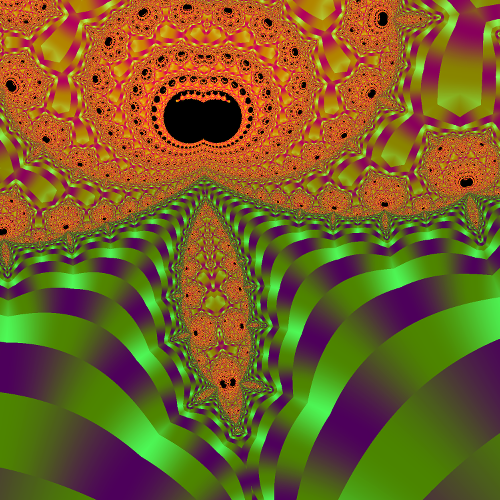結果
| 問題 | No.183 たのしい排他的論理和(EASY) |
| コンテスト | |
| ユーザー |
 koyumeishi koyumeishi
|
| 提出日時 | 2015-04-17 03:33:19 |
| 言語 | C++11(廃止可能性あり) (gcc 15.2.0 + boost 1.89.0) |
| 結果 |
WA
|
| 実行時間 | - |
| コード長 | 2,443 bytes |
| 記録 | |
| コンパイル時間 | 775 ms |
| コンパイル使用メモリ | 81,572 KB |
| 実行使用メモリ | 6,948 KB |
| 最終ジャッジ日時 | 2024-07-04 15:22:13 |
| 合計ジャッジ時間 | 1,869 ms |
|
ジャッジサーバーID (参考情報) |
judge5 / judge2 |
(要ログイン)
| ファイルパターン | 結果 |
|---|---|
| sample | AC * 2 |
| other | AC * 4 WA * 14 |
ソースコード
#include <iostream>
#include <vector>
#include <cstdio>
#include <sstream>
#include <map>
#include <string>
#include <algorithm>
#include <queue>
#include <cmath>
#include <set>
using namespace std;
long long extgcd(long long a, long long b, long long &x, long long &y){
long long d=a;
if(b!=0){
d = extgcd(b, a%b, y, x);
y -= (a/b) * x;
}else{
x = 1;
y = 0;
}
return d;
}
long long mod_inverse(long long a, long long m){
long long x,y;
extgcd(a,m,x,y);
return (m+x%m)%m;
}
// A[n*p] * X[p*m] = B[n*m]
template<class T = int>
int gaussian_elimination_with_mod(vector<vector<T>>& A, vector<vector<T>>& B, int n, int p, int m, const T mod){
vector<vector<T>> V( n, vector<T>(p+m, 0) );
for(int i=0; i<n; i++)
for(int j=0; j<p; j++) V[i][j] = A[i][j];
for(int i=0; i<n; i++)
for(int j=0; j<m; j++) V[i][j+p] = B[i][j];
int rank = 0;
int row = 0;
vector<int> left(n, -1);
//foward
for(int col=0; col<n && row<n; col++){
//pivot
T val = abs( V[row][col] );
int pivot = row;
for(int j=row+1; j<n; j++){
if(val < abs( V[j][col] )){
val = abs( V[j][col] );
pivot = j;
}
}
if(pivot != row) swap(V[row], V[pivot]);
if(val == 0) continue;
T inv = mod_inverse(val, mod);
for(int j=row+1; j<n; j++){
T c = (V[j][col] * inv + mod) % mod;
for(int k=col; k<p+m; k++) V[j][k] = ((V[j][k] - V[row][k] * c) % mod + mod) % mod;
}
left[row] = col;
row++;
rank++;
}
return rank;
/*
//backward
for(int i=n-1; i>=0; i--){
bool zero = true;
bool valid = true;
for(int col=0; col<n; col++) if(V[i][col] != 0) zero = false;
for(int col = n; zero && col<p+m; col++) if(V[i][col] != 0) valid = false;
if(valid == false) return -1; //no solution
if(left[i] == -1) continue;
T inv = mod_inverse(V[i][ left[i] ], mod);
for(int j=left[i]; j<m+p; j++) V[i][j] = (V[i][j] * inv) % mod;
for(int j=i-1; j>=0; j--){
for(int k=0; k<m+p; k++){
V[j][k] = ( (V[j][k] - V[j][i] * V[i][k]) % mod + mod ) % mod;
}
}
}
//return V;
return rank;
*/
}
int main(){
int n;
cin >> n;
vector<long long> a(n);
for(int i=0; i<n; i++){
cin >> a[i];
}
vector<vector<int>> A(n, vector<int>(64, 0));
for(int i=0; i<n; i++){
for(long long j=0; j<64; j++){
A[i][j] = (a[i] >> j) & 1LL;
}
}
vector<vector<int>> B(64);
long long rank = gaussian_elimination_with_mod<int>(A,B, n,64,0, 2);
cerr << rank << endl;
cout << (1LL<<rank) << endl;
return 0;
}
